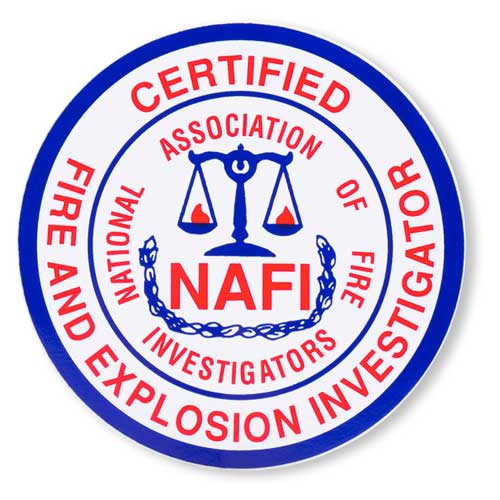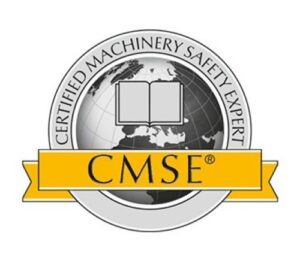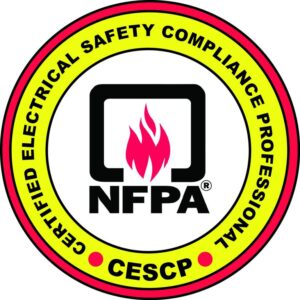When consulting as an expert witness, having certifications can assist in establishing your credibility and qualifications. If you’ve perused the Curriculum Vitaes of the experts at The Warren Group, Inc., you may have seen some of these letters trailing after our names. What do they mean and what organizations grant them? The following is a sampling of some of the certifications our experts have acquired:
The Professional Engineer (PE) is a designation awarded by a state licensing board after the engineer passes a discipline-specific exam and proves appropriate work experience and references. This designation is legally recognized and grants the engineer specific rights and responsibilities, especially regarding public safety and the approval of engineering work.
 The Certified Fire and Explosion Investigator (CFEI) is a designation awarded by the National Association of Fire Investigators (NAFI). This credential demonstrates a professional’s ability to determine the origin and cause of fires and explosions through methodical investigation techniques. CFEIs often serve as expert witnesses in insurance subrogation litigation, where scientific accuracy and adherence to NFPA 921 standards are essential.
The Certified Fire and Explosion Investigator (CFEI) is a designation awarded by the National Association of Fire Investigators (NAFI). This credential demonstrates a professional’s ability to determine the origin and cause of fires and explosions through methodical investigation techniques. CFEIs often serve as expert witnesses in insurance subrogation litigation, where scientific accuracy and adherence to NFPA 921 standards are essential.
 The ACTAR Certification is a professional credential that recognizes individuals who have demonstrated a high level of expertise in the field of traffic accident reconstruction. This certification is designated by the Accreditation Commission for Traffic Accident Reconstruction (ACTAR), an independent, non-profit organization. ACTAR was established to maintain standards of competency and ethical conduct among professionals involved in the analysis and reconstruction of motor vehicle collisions. To earn the certification, candidates must meet specific educational and experience requirements and pass a comprehensive written examination. The credential is widely respected within the forensic and law enforcement communities and is often used to establish credibility in legal and investigative settings.
The ACTAR Certification is a professional credential that recognizes individuals who have demonstrated a high level of expertise in the field of traffic accident reconstruction. This certification is designated by the Accreditation Commission for Traffic Accident Reconstruction (ACTAR), an independent, non-profit organization. ACTAR was established to maintain standards of competency and ethical conduct among professionals involved in the analysis and reconstruction of motor vehicle collisions. To earn the certification, candidates must meet specific educational and experience requirements and pass a comprehensive written examination. The credential is widely respected within the forensic and law enforcement communities and is often used to establish credibility in legal and investigative settings.
 The Certified Machinery Safety Expert (CMSE®) is a designation awarded by the TUV Nord organization (a German organization that works to validate the safety of products and services of all kinds to protect humans, material assets and the environment against hazards). It signifies advanced competence in understanding and applying machinery safety standards, regulations, and best practices. Their primary role is to provide technical insight into whether machinery safety standards and regulations—such as those outlined by OSHA, ANSI, ISO, or EN—were properly followed. Drawing on their specialized training and certification, a CMSE can assess the design, operation, and maintenance of machinery involved in an incident, determining if appropriate risk assessments were conducted and if safeguarding measures were adequate.
The Certified Machinery Safety Expert (CMSE®) is a designation awarded by the TUV Nord organization (a German organization that works to validate the safety of products and services of all kinds to protect humans, material assets and the environment against hazards). It signifies advanced competence in understanding and applying machinery safety standards, regulations, and best practices. Their primary role is to provide technical insight into whether machinery safety standards and regulations—such as those outlined by OSHA, ANSI, ISO, or EN—were properly followed. Drawing on their specialized training and certification, a CMSE can assess the design, operation, and maintenance of machinery involved in an incident, determining if appropriate risk assessments were conducted and if safeguarding measures were adequate.
 The Certified Electrical Safety Compliance Professional (CESCP) credential, offered by the National Fire Protection Association (NFPA), emphasizes electrical safety in the workplace. CESCP-certified individuals are experts in compliance with NFPA 70E standards and are often involved in litigation related to electrical injuries, arc flash incidents, or OSHA violations. Their testimony can help clarify whether industry-best practices were followed and if electrical systems posed unnecessary risks.
The Certified Electrical Safety Compliance Professional (CESCP) credential, offered by the National Fire Protection Association (NFPA), emphasizes electrical safety in the workplace. CESCP-certified individuals are experts in compliance with NFPA 70E standards and are often involved in litigation related to electrical injuries, arc flash incidents, or OSHA violations. Their testimony can help clarify whether industry-best practices were followed and if electrical systems posed unnecessary risks.
![]() Certified Playground Safety Inspector (CPSI) is a certification granted by the National Recreation and Park Association (NRPA). CPSIs are trained to assess playground equipment and environments for safety hazards in accordance with national standards. They frequently testify in personal injury cases involving children, helping courts determine if a playground was properly designed, installed, or maintained.
Certified Playground Safety Inspector (CPSI) is a certification granted by the National Recreation and Park Association (NRPA). CPSIs are trained to assess playground equipment and environments for safety hazards in accordance with national standards. They frequently testify in personal injury cases involving children, helping courts determine if a playground was properly designed, installed, or maintained.
The Certified XL Tribologist (CXLT) is a niche certification focused on slip and fall prevention, particularly through walkway surface traction testing. Awarded by the Excel Tribometers company, this credential indicates proficiency in using the English XL Variable Incidence Tribometer to measure coefficient of friction. CXLT-certified experts are often retained in premises liability cases to evaluate flooring surfaces and determine whether they contributed to slip and fall incidents.
Lastly, the FenestrationMaster® Professional Certification (FMPC) is awarded by the Fenestration and Glazing Industry Alliance (FGIA) and signifies advanced knowledge of the fenestration industry, including performance standards, products and materials, test methods and code requirements. This credential is crucial in construction defect litigation, particularly when disputes involve water intrusion, thermal performance, or installation standards.
Each of these certifications strengthens an expert witness’s authority in court by showing that their opinions are rooted in established training, rigorous testing, and industry standards. For attorneys and litigants, selecting an expert with the right certification can be instrumental in establishing credibility and achieving favorable outcomes in complex technical cases.
As President of The Warren Group, Jennifer Morningstar, PE, CFEI, holds a Bachelor of Science Degree in Chemical Engineering from Virginia Polytechnic Institute and State University as well as a Master of Business Administration from the University of South Carolina. She is a licensed professional engineer in several states and a NAFI Certified Fire and Explosion Investigator. Jennifer has over 20 years of chemical engineering experience. Throughout her engineering career, Jennifer has conducted forensic investigations involving chemical release/exposure, OSHA process safety management, industrial accident investigation, fires & explosions, and equipment failures. Jennifer is a member of the National Association of Fire Investigators (NAFI), the South Carolina chapter of the International Association of Arson Investigators (SCIAAI), and the American Institute of Chemical Engineers (AIChE).



